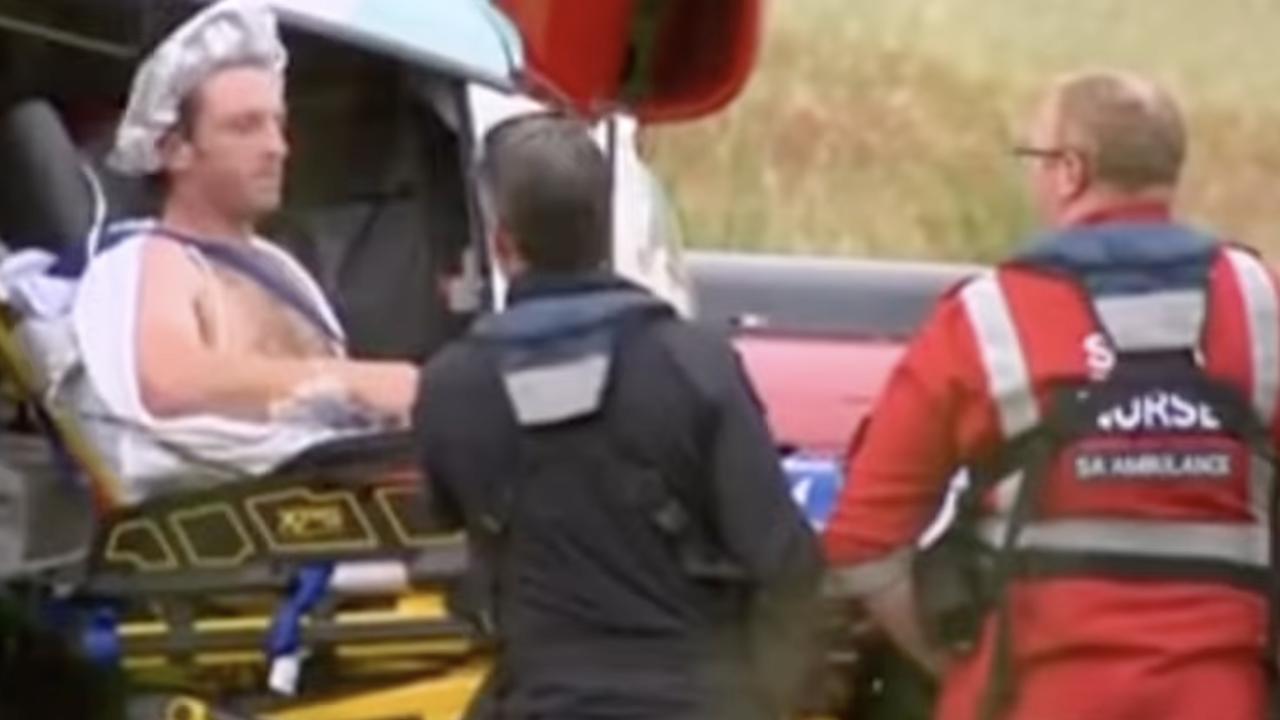Why Islamic State targeted Tunisia, Kuwait and France
IT’S the equivalent of Bali for Brits. A beachside oasis with turquoise waters and stunning sites. So, why is this place so important to IS?

WITH its turquoise waters, stunning archaeological sites, Star Wars setting and relatively low prices, Tunisia has long attracted European tourists.
But hundreds are now fleeing the country after last week’s shocking jihadist attack — and that’s just want Islamic State wants.
International development expert Dr Denis Dragovic, of the University of Melbourne, said the exodus would decimate the Tunisian economy, destabilise the country and make more people susceptible to extremism.
“Tunisia is one of the most liberal Arab Spring countries that has emerged since 2011,” Dr Dragovic said.
“Its democracy is now robust, it held elections recently and its social politics is quite liberal. For those reasons it is quite closely in line with the West.”
But despite embarking on a democratic path, Tunisia’s tourism industry has not managed to recover. The latest attack, which saw a Tunisian student open fire on holiday-makers at a seaside hotel, will bring more pain.

Dr Dragovic said the attack was designed to undermine the democratic gains in Tunisia.
“What Islamic State don’t want is for democracy to successfully take root in Arab countries,” he said.
Dr Dragovic said IS wanted to see instability take hold in Tunisia, like it had in Libya, which descended into lawlessness after the 2011 NATO-backed overthrow of autocrat Moamer Kadhafi.
Libya has rival governments and parliaments, and jihadist militants have seized on the chaos to gain supporters. Islamic State bombed an up-market hotel in the country’s capital Tripoli in January, and managed to gain a foothold in key towns and cities in the mostly lawless North African state.
Dr Dragovic said if Tunisia also experienced this type of instability, residents would be more open to Islamic State.
“So (residents) would feel they have no security, that their lives are threatened and this is where (Islamic State) can offer some sense of security like in Libya,” he said.
There was no question that Islamic State also targeted Westerners in the attack, he said.
Tourism accounts for 7 per cent of Tunisia’s gross domestic product and almost 400,000 jobs, but the sector has struggled since 2011 due to terror attacks. French tourists have historically been prominent travellers to Tunisia, but their numbers dropped last year by 6 per cent. This year, Tunisia’s tourism minister complained that the attacks in Paris had spurred an “irrational” spate of cancellations.
There were also reports this year that tourists were being told to stay away from the area of Tunisia where George Lucas filmed scenes for Star Wars: The Phantom Menace, due to terrorist activity.

“(IS’s) aim is to be able to confront the West, which is why contributing troops to fight them directly would be playing into their hands,” Dr Dragovic said.
But he said people should keep in mind that the attacks were probably not centrally planned but more a case of someone being in the right place at the right time to do an attack.
“Was there a master plan? I doubt it. I think it’s more opportunism and the right people being in the right place for them to make the attack,” he said.
However, Dr Dragovic said the timing of attack, which killed at least 38 people, was significant because it happened during Ramadan. IS leader Abu Bakr al-Baghdadi had predicted that the holy month would be a particularly bloody one.
On Tuesday, Abu Muhammad al-Adnani, the chief spokesman for IS, also released a statement urging jihadists to attack Western targets.
“He said if they die as a martyr in Ramadan, ‘You are 10 times more likely to be accepted into paradise’,” Dr Dragovic said.
It also comes at a time when IS has felt under pressure, having lost ground in Syria, Iraq and most recently, Libya. This gave the group a greater incentive to hit back and regain momentum.
As for the attack on Kuwait, Dr Dragovic said it was different because the country was very stable and wealthy.
“There, they are trying to create discord between Shia and Sunni populations,” Dr Dragovic said.
He said IS had a theological motivation in that it sees Shia as “apostate”, meaning it considers those Muslims as having abandoned religious principles, and so bombing a Shia mosque is a legitimate target.
While some of the media narrative around IS fighters was that they could be acting out of disenfranchisement and anger, Dr Dragovic said this belief undermined the fact that many of them genuinely believed in the ideology of IS, which seeks to establish a caliphate governed by a harsh and violent interpretation of Islamic law.

Meanwhile, Dr Dragovic said even though a third attack happened in France on the same day, IS had not yet claimed responsibility for this attack. It was likely this was a lone wolf attack, in contrast to the ones that happened in Tunisia and Kuwait.
“It was probably inspired by, or maybe the person was in touch with someone at Islamic State; there is no indication it was coordinated by them,” he said.
Dr Dragovic said that, in the long term, he did not believe IS could sustain itself based on “seventh-century governance principles” but, in the short term, he believed the attacks had their desired effect.
“In the short term, it has certainly mobilised our government, and the governments in France and Tunisia. Tourists are flying out of Tunisia, which will decimate the Tunisian economy, which means more people will be susceptible to extremism. For them (IS), they came out of the last three days with what they wanted.”



